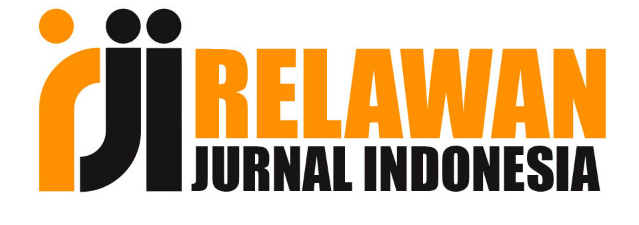Bilingual Learning in Global English Class Learning Communities for Elementary School Level Children
Abstract
The era of industrial revolution 4.0 requires the mastery of science and technology so that mastering bilingualism becomes one of the most important needs of human life. A bilingual education program is an attempt to introduce children to a second language, especially English, which is implemented in education and training. The purpose of this study is to: (1) explore in depth the management implemented in the Global English Class Learning Community at the primary school age. (2) describes the implementation of bilingual education for elementary school children. (3) description of the results of the implementation of bilingual education among preschool children. This type of research is qualitative with an ethnographic approach, which is a method of deciphering and interpreting the system of emerging cultural or social groups. The subjects of this study were primary school children and teachers of the Global English Class Learning Community. The results of the study show that bilingual education in the Global English Class Learning Community has a positive effect on primary school children. The concept is used in different models, such as group learning, peer learning, field trips, mother tongue learning. The implementation of bilingual education in Global English Class shows a positive effect and is very useful for primary school children in acquiring the child's bilingual language.
Keywords
References
Abidin, N., Arifin, S., & Syakarna, N. F. R. (2022). MANAJEMEN PENERAPAN PEMBELAJARAN BILINGUAL DI PONDOK PESANTREN MODERN MUHAMMADIYAH BOARDING SCHOOL JETIS PONOROGO JAWA TIMUR. Muaddib : Studi Kependidikan dan Keislaman, 12(1), 1–14. https://doi.org/10.24269/muaddib.v1i1.5003
Afif, N. C., Sutikno, D. U., Hardiyanto, N., & Shiratina, A. (2015). Building Brand Loyalty Through Increasing Brand Trust And Brand Affect. INTERNATIONAL JOURNAL OF SCIENTIFIC & TECHNOLOGY RESEARCH, 4(11).
Ardiansah, D. (2014). Kampung Bahasa Sebagai City Branding Kota Pare Kediri: Studi Kualitatif Komunikasi Pemerintah Kabupaten Kediri. Doctoral Dissertation.
Astuti, R. (2017). PENERAPAN PEMBELAJARAN BILINGUAL (DWI BAHASA) DI TK INKLUSI (Studi Kasus TK Ababil Kota Pangkalpinang). AWLADY : Jurnal Pendidikan Anak, 3(2), 109. https://doi.org/10.24235/awlady.v3i2.1540
Hendrawan, A., Winarti, T., & Indriyawati, H. (2021). Metode Stemming dalam Penerapan Artikel Berbahasa Indonesia. CV. Pustaka Learning Center.
Lase, D. (2019). Pendidikan di Era Revolusi Industri 4.0. SUNDERMANN: Jurnal Ilmiah Teologi, Pendidikan, Sains, Humaniora dan Kebudayaan, 12(2), 28–43. https://doi.org/10.36588/sundermann.v1i1.18
Malik, C., Mahmud, M., Anshari, A., & Salija, K. (2020). EFL Teachers’ Strategies in Teaching English at Kampung Inggris Pare, Kediri, Indonesia. Asian EFL Journal Research Articles, 27(3).
Mirsa Umiyati & Ni Made Chandra Widayanti. (2022). Pengajaran Bahasa Inggris Kepada Anak Anak Binaan di Desa Suwung yang Dikelola Komunitas Kammbodja Rumah Belajar. Linguistic Community Services Journal, 3(1), 9–15. https://doi.org/10.55637/licosjournal.3.1.4778.9-15
Pandie, S. G., & Manapa, I. Y. H. (2021). Meningkatkan Prestasi Belajar Mahasiswa Menggunakan Model Pembelajaran Kolaboratif dengan Pendekatan Blended Learning. SAP (Susunan Artikel Pendidikan), 6(1). https://doi.org/10.30998/sap.v6i1.8614
Rachmana, Y. S., & Budiani, M. S. (2013). PERILAKU SOSIAL PADA ANAK USIA DINI YANG MENDAPAT PEMBELAJARAN BILINGUAL. 1.
Rini, S. (2016). 5 and 7 Year Old Childrenwith No English Background RespondToward Parents’ Stimulus Using the Comprehensible Inputs on Direct English Daily Conversations at Home. Register Journal, 1(1), 23. https://doi.org/10.18326/rgt.v1i1.23-42
Rukajat, A. (2018). Pendekatan Penelitian Kualitatif (Qualitative Research Approach). Deepublish.
Sidu, N. (2017). Ekoleksikon Ke-Kaghati-An Bahasa Muna. RETORIKA: Jurnal Ilmu Bahasa, 2(2), 328. https://doi.org/10.22225/jr.2.2.64.328-349
Tambak, S. (2017). Metode Cooperative Learning dalam Pembelajaran Pendidikan Agama Islam. Al-Hikmah: Jurnal Agama dan Ilmu Pengetahuan, 14(1), 1–17. https://doi.org/10.25299/al-hikmah:jaip.2017.vol14(1).1526
Umiyati, M. (2021). Konservasi Bahasa Bali pada Kegiatan Kesubakan di Desa Mambal. Linguistic Community Services Journal, 2(2), 38–45. https://doi.org/10.55637/licosjournal.2.2.3135.38-45
Vu, D. V., & Peters, E. (2021). Vocabulary in English Language Learning, Teaching, and Testing in Vietnam: A Review. Education Sciences, 11(9), 563. https://doi.org/10.3390/educsci11090563
DOI: 10.28944/maharot.v6i2.885
Refbacks
- There are currently no refbacks.

This work is licensed under a Creative Commons Attribution-NonCommercial-ShareAlike 4.0 International License.






